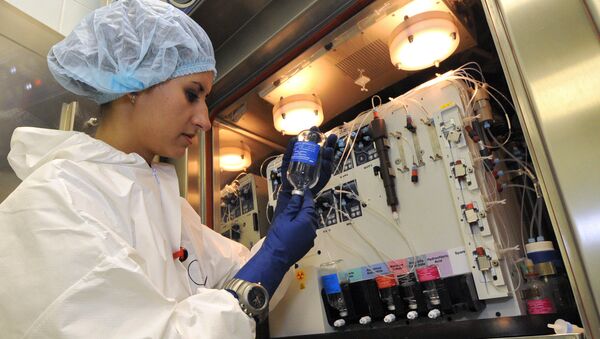MOSCOW (Sputnik) — Led by Alexander Mazhuga, head of the biomedical nanomaterials laboratory at Russia’s National University of Science and Technology, the team intends to launch its clinical trials in 2018, the university press service told RIA Novosti.
The team, which began to develop the diagnostic tool in 2014, unites experts from NUST MISiS, Lomonosov Moscow State University and Pirogov Russian National Research Medical University.
Their breakthrough preparation consists of using biopolymer-coated magnetite particles with an average size of 40 nanometers, easily detectable on MRI scans. It allows for early stage detection, costs much less than other imaging contrast agents, and unlike other methods is not toxic.
"We are working with magnetite nanoparticles whose biopolymer coating contains an anticancer drug. Our technique, unprecedented in the world, targets it to cancer cells," Dr Mazhuga said.
The technique will be used to carry the drug to tumor cells as the coating is sensitive to their surface receptors. Magnetite penetrates only these cells and does not poison the entire body.


